#usually I explain my behaviour by blaming it on childhood trauma
Explore tagged Tumblr posts
Text
*through gritted teeth, rocking back and forth* Being bad at art isn’t a moral failing. You’re not bad you’re learning. It’s okay if you’ve been drawing almost daily for four years and aren’t at the level you want to be. Look back and see how much you’ve improved. Do studies. Practise areas you’re bad at. Stop drawing only the same characters chest up in 3/4 profile view. Step out of your comfort zone. Look at tutorials. Use references. Study anatomy and colour theory and how light and shadow work. Stop making yourself upset over it. Stop hating yourself for not being good enough. Stop comparing yourself to others and getting angry over how they’re better than you. Learn to have fun while drawing. Art is supposed to be fun. Why would you do it if it’s wasn’t fun? Stop crying.
#*deep sigh* I don’t know how many more 2 a.m hysterical fits over hating my art I’ve got in me chief#I don’t know why I’m like this#usually I explain my behaviour by blaming it on childhood trauma#but my art wasn’t a trauma point#as in. I just never really showed it to my parents so they couldn’t say bad things about it even if they wanted to#well… there were those art classes with that one girl whoshe mom wouldn’t shut up about how great she was#and my mom spent tons of time with her so if I complained I’d just be compared to the girl#actually… I was so much more confident in my art before those classes#like I look back at what I posted pre April 2022 and I had absolutely no shame#wonky anatomy? post it anyway. extremely amateur colour and shading and backgrounds? who cares#and no one in those classes was mean to me#everyone was so nice and supporting#but the very first time I was brought there was when I realised that I am objectively bad at art#and don’t understand the fundamentals and am only good at drawing the same thing over and over again#I was so close to crying that day#and I kept going back and it kept getting worse#holy fuck…#I enjoyed those classes a lot#even though I was having breakdowns left and right I was mostly satisfied with the end results#(yeah because the teachers usually ended up finishing everything for you ты рукожопая бездарная тварь)#but I guess that is where my problems started#god.. I wish I never went to those now#maybe I wouldn’t be like this#maybe I’d act even half well adjusted rather than sobbing into my pilllow every time my#(no reference no practice no knowledge of anatomy colour or shading)#drawing turns out less than perfect#good fucking god how pathetic can I get#and this is like the 10th time I’m making long ass tag rant posts about the same issue#and since writing them did I attempt to fix it? practise and study and improve? no. I just keep crying#like a little whiny bitch
1 note
·
View note
Note
“It had happened to him. He wanted to know if she felt just as bad as he did.”
….when I tell you my jaw DROPPED!! I had to put the phone down and stare at the wall for a couple of minutes. it’s so shocking cause from the beginning it was established that Amara was a victim of CSA but when you revealed he too was a victim oh my god, and I love it cause sometimes it is automatically assumed that the female is the only one who could suffer from this type of abuse. Ugh That just broke my heart. My brain was screaming it better not be fucking Daemon!
We’re going to see them be some pretty toxic people based on the warnings, but now that what happened to them is revealed and this picture of their childhood is painted, it almost acts as an excuse. At least for me. Some may see childhood trauma as the reason of toxic behaviours in adulthood but I always tend to see it as an excuse to these behaviours. It’s like seeing a bad person but then you remember them when they were a baby and you can’t stay mad. At the same time I know that’s not a good perspective to have because people need to be held accountable. Sorry if that made no sense. Man, sad children are my weakness, this story is going to be a struggle.
Anyway thanks for sharing your talents with us I’ve always loved your writing!!
It is sad that females are assumed to be victims of such abuse but the culture around masculinity and the pressure on little boys to conform keeps them quiet on what constitutes sexual abuse for them. Girls are told to be careful, to watch out, that someone might hurt us even when we're not sure who or what this Big Bad is. But little boys aren't told the same way, especially not once they're past the dangerous age of being small enough to be whisked away in a van. Teenage boys are sexually abused too, but by then, the masculinity chip is embedded powerfully deep, and the chances of them reporting said abuse diminishes.
Some things in their behaviour are definitely a throwback to what they've suffered. But certain traits in Aegon as he gets older and has the choice to go to therapy aren't excused by what happened to him in the past.
It's one of those enduring cycles of 'the abused becoming the abuser.' There is a little bit where Alicent brings up the time when he was eleven, touching other kids his age sexually and when the parents complained, she herself didn't know how to explain it because she still doesn't know what happened to him. At the age of eleven, it's still not an excuse for him to scar other children, but we have the reason.
However, the older he gets, there are hints dropped here and there he is the one who prefers to be in control, to the detriment of the people he's having sex with, or is being sexual towards. His view of sexuality was mangled the second his abuser touched him, but it doesn't erase the people suffering. His abuser convinced him what they were doing was 'right' and that Aegon wanted it, he just didn't register that properly. Aegon's taken that logic and applied it to sexual encounters where the other party was not as willing as they should be in an ideal scenario (Amara being the most obvious example).
The sad truth is, in fiction we can sit and digest these behaviours and point to what the character suffered in the past as providing a map.
But in real life, people are less forgiving, and most of them don't know what kinds of abuse others have suffered - they just see irrational behaviour and make a passing cruel comment or avoid the person. It takes a very big heart to always be open to potential empathy and not letting emotion take over when it comes to someone's irrational/annoying/bad behaviour towards yourself and maybe figuring out why they act that way. But there isn't much time for that usually so most people choose to forego it and I don't blame them. Life is what it is. The occurrence of abuse can feel so irrational, and bring up the why me, why me, why me aspect of it, especially when no one is held to account for what happened. But that's life in a nutshell I suppose. You take it on the chin and try to move on (and not hurt yourself in the process).
Fiction is probably the only space stuff like this can be processed because it's done at the writer's own pace, and digested at the reader's own pace too.
11 notes
·
View notes
Text
It's really difficult to write bullies for a multitude of reasons. Primarily cuz many people have been bullies in their life before - they just don't know.
Which makes everything so fucking difficult. Because, when writing a fictional character, especially one with noticable flaws, you want to explain their behaviour - not excuse it, necessarily, but show the audience why they are the way they are. For example, a character with trust issues may be that way due to being lied to and deceived in the past by those they loved.
But, for whatever reasons I find this becoming more difficult to nail down with bullies, specifically.
Because, again - most bullies don't think they're bullies. In their eyes, they might have not noticed the actual damage they've done to others, or maybe they were just focusing on how much fun they've had with their friends, or the laughs they shared over teasing others. We're the main characters in our own lives so, for us, we fail to realize when in other people's lives, we become a form of an antagonist. I would know
For bullies, writers typically try explaining why they're bullies - it's typically family issues or other forms of inner emotional conflicts.
And y'know what? I think it makes sense. I'll make a concession - briefly, I've bullied others before as a result of peer pressure. I've never fully "fit in" with others, and in middle school that feeling only became more abundant, and my bullies only got worse, so when others told me to do dumb or mean stuff to other kids, I'd... Submit, because when they laughed over or even just desired me doing... Anything, I felt more loved and accepted. I admit it was stupid of me and overall a bad thing to do, and when I realized it, I quickly stopped (though I failed to apologize, and now it's too late). So yeah; bullying can stem from issues and problems from childhood and such.
Though I typically see people saying that bullies being the way they are due to trauma or similar stuff is "unrealistic", and they usually just do it because they're bored - and while I do believe this very well can be the case as well, usually the people that say this (from my personal experience) tend to be ones who say they've been victims of bullies, rather than bullies themselves - so I don't fully understand where their arguments stem from, or why they believe they fully understand the internal mindscape of every kid that anyone can deem to be a bully.
Also, from personal experience, I tend to notice my past bullies have struggled a decent amount themselves over all sorts of things. While I've never come to fully understand them, it was pretty obvious - to me, at least - that their bullying was simply a way of coping or seeking attention, positive or otherwise.
And also, a kid that bullies others just because they're bored makes up for a pretty boring antagonist IMO. i mean, you could probably make it work, but it's more interesting to give them complex family lore and coping mechanisms, even if it's not always the case.
There also comes the subject of prioritizing how much the bully is sad or how they feel, over... Those they're bullying. One time, in a middle school class focused on primarily mental healtn, the topic of bullying was the subject of the day. It wasn't anything too special - just a typical Powerpoint presentation that almost no one really payed attention to (especially since literally no one cared about the class and it was extremely unserious - I can't blame them, I didn't care either). However the presentation exclusively focused on how the bully might feels rather than the victim.
And like, yeah. We should talk about why some kids bully others. But we need to point out now anyone can be a bully, even you - but, from what my forgetful mind remembers at least, the Powerpoint presentation failed to achieve that.
I feel like the concept of The Bully has been a bit... Romanticized??? Is that the right word? So people just see it as a vague fictional concept rather than something anyone can be realistically
I don't know. But long post short - most people don't think they could possibly have been bullies ever, but they want to write bullies, some - due to lack of personal perspective - heavily rely on tropes such as parent issues while I've seen many people criticize these tropes due to being "unrealistic" but those people tend to not have been bullies themselves (or at least don't think they've been).
#this psot kimda sicks ass tvh#anywau toki.lore dropped.#i dont want to excuse myself. some ppl have said my bullying was “justified” cuz it was targeted towards my bullies themselves#i dony think thays yhr case though..id mostly tease them snd torture them unprovoked#cuz i thought it was funny + i liked peer approval#not.proud of myself. bit yheres noy much i can fo besides move on and prevent thay grom happening again#toki rambles#tmf#yes this is abt he silly gucking gacha dhow
2 notes
·
View notes
Note
Need serious advice about setting boundaries or communicating when dealing with a person who:
Is a parent
Has unhealthy communication methods -- it takes very little for them to start full-blown screaming, shouting out all your 'negative' things/mistakes/past, can continue to scream-criticise you even after you've gone silent, for WHOLE MINUTES even if you've shut up, will not accept anything that even hints at them making a mistake
You can't trust since childhood coz u made the mistake of confiding in them with a serious issue as a young teen --- mental related --- and they belittled and invalidated you, and since then pretended you never confided in them and have NO IDEA how you've been coping without them or ANYone else for years... Yeah thanks, parent, what u said back then made me think I was the one at fault and so I stopped trusting even friends coz yeah, when ur own parent doesn't give a damn, why would anyone else?
Is a master at silent treatments without explaining what EXACTLY they're punishing you for, then when theyre in the mood, will start talking to you as if they hadn't ignored you for days. Lol I'd rather be water boarded I think. Especially for all the damage this caused when I was a child
Won't openly talk about what they want, yet expects ALL FHE TIME others (in the family) to know what they want, then will complain/scream/angry for AGES about how no one cares, no one gives a damn... And when someone asks them what they want, they either say: nothing, or "you should know! Can't u see?"
Upon asking them to please talk normally, will blow a fuse, and lose it --- happened multiple times today
Literally will use me as a scape goat to unleash their frustrations upon. Even when I leave the room, I can hear them b*tch about how much of a failure I am etc. The trigger being anything that bothers them, from a phone call to something other siblings did, bla bla. I limit my time with them... But it's like, it feels impossible to have them treat me normally, without ridiculing or criticising me. I'm already a very low self esteem person... This doesn't help AT ALL
In short, refuse to tell/ask/discuss important stuff, and getting mad randomly that no one read their mind, bcoz everyone's 'old enough to have enough sense' to know what they 'should' do... Eg will not pikc up the phone when we call them from the store to ask when what the needed isn't available, so what other alternative can we get... And then when we get home, will instead blame us for being fussy and not getting the alternative, completelt skirting around the issue they didn't deign to pick up the phone... I mean, I don't get it. In the past I HAVE in fact asked them to just openly tell me what they want/expect from me to make them happy... Got passive aggressive answers like "don't you know? Are you dumb?" Bla bla
Passive aggressive to the max when they've lost it
Expect me to drop anything I'm doing and immediately cater to them, and expect me to help them in their hobbies (while simultaneously, as I learned many years ago to much heartache, not being interested or even pretending to be interested in my hobbies. The disinterest taught me very quickly how much what I wanted meant, leading to years of self-invalidation. Luckily I've learned it really is them, not me. My hobbies are valid)
Will not talk about why they're feeling angry, what causes it. Instead will blame me, who's like the golden scapegoat in our amazing family, by saying :YOU made me negative. They've said it many times now... It hurts a lot, when I'm also struggling with my own issues which I ofc can't confide in them about :)
Today I manned up -- the outburst of hatred happened again! Over a simple thing. It was NIGHTMARE and made me angry/sad/frustrated/triggered---, and so I told them to stop talking like that... Boy was that the wrong thing to say... I don't think I can accurately tell u what happened afterwards...
Usually children learn communication skills from the parents... I at least learned to recognize the unhealthy ones, and what NOT to communicate like lol. Like, other parent is even worse, believe it or not. But that's another complex situation
I'm not bashing on the parent. Lord knows I even have that much of a right huh? I hate myself eveb more when they invalidate me if I try to show how MUCH THEY HURT me after a 'communication session'. As in, heaven forbid me if I BE SILENT afterwards and DON'T wanna listen to their retardation. Nope. Even then they provoke me, rage at me, you know how sometimes enraged people hiss vitriol thru gritted teeth? Yeah, that's what they did today after I stayed silent and tried to ignore them an hour later after the 'session' when they wabted something. It's like they don't even need me to say a word and will carry on and on for minutes 🤢
I feel alone, helpless and at a loss what to do
I want to move out. Due to severe mental issues I can't even move out rn coz it scares me even more. But this has to stop. Things are only okay if I'm absolutely passive, say yes to whatever they want, kill my wants and needs, and become a perfect robot bred to cater to them (parent)
I hope you can help me out, dear
Hi darling,
It sounds like you’re in a considerably toxic environment. I'm sorry you're going through this. Know that this is not normal, nor is it how a parent/child relationship should be. In case there's any doubt, let me start by saying you deserve to be supported, respected, listened to, to have your needs met. You deserve to live in an environment that offers you all of these things.
With that being said, from the many scenarios you’ve mentioned you’ve already tried reasoning and setting boundaries, to no avail. There is only so much you can do on your own, if the other person in the equation is not meeting halfway or at all. After all, a healthy conversation involves two people, not just one.
Here's my advice, in this order:
Calmly and maturely asking the respective parent to have a serious discussion with you and to listen to what you have to say. Share how their actions and behaviour is making you feel, let them know you care, and make sure to mention several solutions for the issue as well. If this doesn’t work…
Bring up the subject of needing help from outside, such as the assistance of a specialist/therapist. Family counselling can shed a lot of light on toxic behaviours that are ingrained from childhood (both in their case and yours), on fears your parent may have, stress from their work, whatever is causing their outbursts and anger - because there is always a reason. Behind anger is sadness, and behind sadness is some need not being met, or an underlying fear, trauma, etc. This is not a justification for their behaviour, they are responsible for it; this is simply the fact of how energy dynamics work. People bottle up their frustrations, fears, etc, and let them out on those closest to them, to whom they feel superior. It’s not fair, and it’s not healthy, but it is frequently how this pattern works. If this solution doesn’t work either…
Then unfortunately, all you can do is focus on yourself. If they refuse to meet you anywhere along the road, you have to pack up your things and go your own way. Literally or metaphorically. They may be your parent and you may love them even in spite of their behaviour, but you cannot hold yourself responsible for anything they say or do; that is on them. In those cases, you have to prioritize your own mental health and wellbeing, and focus on moving out. If your (home) environment is toxic, you have to focus on first changing it. That’s vital. Only afterwards can you start healing, refinding yourself, reclaiming your self-esteem and confidence, your sense of worth. As long as you stay stuck in a toxic environment, you cannot really heal; if there is abuse of any kind (physical, mental, emotional), the causes are still there, leading to re-traumatizing.
If for whatever reason moving out is not (yet) an option, I would emphasize seeking some sort of counselling for yourself, if nothing else. You need an anchor, some sort of support that will help you along your path until you do get out.
Now, I don’t know how old you are. I am going to assume you are over 18 and of age, so only mind my advice if that is the case. (As disclaimer, I don't provide advice to minors as it's not the scope of my blog nor am I specialized/focused on that area.)
I understand moving out seems scary because it is unknown, but with that line of thought you may wait another 10 years in the same situation. Wouldn’t you wake up 10 years later already having done the hard work on moving out, finding your independence, claiming your sense of individuality and moving on from this sort of environment, this phase in your life?
Sooner is better than later, but do so with mindfulness and care over your mental health, of course. I know it’s scary. But being an adult requires some difficult decisions at times, and setting boundaries begins with choosing your wellbeing and doing what needs to be done, even if it is something uncomfortable short-term, but highly rewarding and beneficial long-term.
Hope this helps... and wishing you much luck, clarity, gentle guidance and comfort.✨
PS: Lately I've been receiving longer and longer letters in my inbox. As solution, I was thinking of having longer asks/letters redirected to my blog where there isn't any length limit, and readers can more comfortably browse both my tumblr and blog - and those requesting advice can share and receive a more in-depth response.
-Lumen
#mental health#toxic relationship#toxic environment#boundaries#parenthood#ask#tw? not sure what to tag just in case#tw: swearing#tw: mental health#tw: anxiety
19 notes
·
View notes
Text
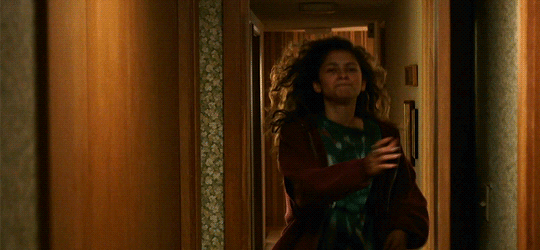
WHAT EUPHORIA GETS RIGHT ABOUT MENTAL ILLNESS:
the high fucking highs: EG (“when I feel good I think it’ll last forever, but it doesn’t” at the Halloween party when rues attempted to kiss jules who rejects her again) I can’t relate to rues manic episode, since I don’t have bipolar but her jittery display of chain-smoking, obsessive thoughts, sleep deprivation, numbing the pain with coffee and taking more steps than she needs to captured the obsessive side of OCD very well, as well as the: COUNTING. I’ve had to repeat numbers in my head over and over and watching rue just start hysterically crying as a child during trying to complete that compulsion fucken’ sent me because I’d never seen an accurate nuanced way of this shown on television. I loved that her OCD wasn’t reduced to cleaning obsessively (EX’ Emma from Glee) even though many people struggle with OCD compulsions of that kind it’s a bit of an overused trope almost like a laughing track in sitcoms, and usually doesn’t serve the characters development in any purpose having their OCD solely exist for neurotypical characters to make sarcastic jokes about.
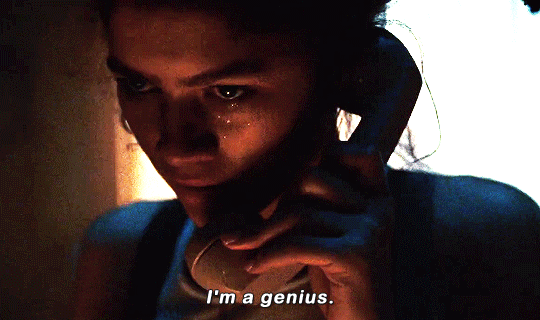
the l-o-w fucking lows: EX’ rue being glued to her bed for two days unable to engage with anyone or even get up to fucking piss resulting in a painful difficult to watch ¿UTI¿ scene. At a time I experienced severe intrusive thoughts I neglected taking care of myself so much that my hair formed dreadlocks and took hours to brush knots all out.

pushing everyone away: EX’ (I mean just look at the first gif, as well as how rue loses it at Lexi when she tries to check in on her.) while people struggling with any kind of mental illness have a tendency to isolate (espesh in cases of severe depression/mood disorders) however it’s not always aggressive sometimes it’s quiet silence in your room for a week and a half feeling completely immobilised (like with Jules during rues own depressive, she unknowningky sinks into one herself to the extent where her dad is concerned).
feeling like a burden: whether it’s because of your mental illness, low self image or like rue your addiction issues impacting those around you, rue confesses this to Lexi who in true Howard fashion holds her and tries to affirm that she’s nothing like that. Often feeling like your own problems are too heavy for anyone to bear or understand adds to the hopelessness and potentially it could be one of the biggest roadblocks to anyone’s recovery particularly Rue’s

being heavily affected by external factors, more so than normal: like social aspects of your life EX’ (Rue’s codependency on Jules, and Jules’ search for affirmation in sexual relationships, Rue’s nerves upon returning to school particularly hit me (I had a three week hospitalisation and received treatment that kept me off school frequently, and the responses from peers was right on). when noticed again Maddy tells Rue herself she thought she was dead and another friend in her car shouts for rue to “get in Casper!”. Things like school, relationships, daily tasks and functioning can feel a million time harder when you’re battling your own head, the way Euphoria demonstrates this is so raw and realistic it really hit home for me. This becomes even more heightened when people are dealing with trauma/grief ex’ (rue still carrying the grief of her dad and wearing his hoodie frequently and maddy going on a bender taking molly at the carnival forgetting to eat for two days after nate assaults her resulting in her having to be rushed into emergency where they find the marks).

addiction and the feeling of needing to escape your own head: rue will take around about any drug just to temporarily forget her own anxieties, she’s willing to lie (in drug tests by using her sober friends pee), and fight tooth and nail even if it’s against the people she loves/cares about eg: her family, fezco, etc). her addictive personality is made apparent by her obsessive behaviours, codependency with Jules, hyperfixations (watching 22 hours of love island straight) and then again in her drug use. zendaya does an amazing job at selling this all, the way her face slowly sinks from the depths of depression into what looks like she’s gotten a relieving breath of air conveys what exactly she’s getting out of this. with any addiction whether it’s substance abuse, sex addiction, eating disorders, skin picking disorders, etc there’s a need to escape but there’s also a sense of safety/reprieve from what’s making you need that escape. for Rue who is heavily characterised by her own self-blame eg: being scared of people she loves being mad at her like in that scene with Jules, the way she cried when she saw her mother and sister sleeping beside her in hospital when she woke up from her overdose, and in one of earliest narrations where she states “if I could be a different person I would, not because I want it but because they want it” and even asks Jules after she admits to being in love with her if she wishes she was different and Jules responded in the negative. she seems to want to dissociate herself because she feels the weight of her as a whole is too much for anyone and will only be disappointing. it’s sordidly relatable for anyone with low self esteem and as a rue stan the candidness can make the scenes hard to watch.

to recover or sink: rue says herself in narration that after rehab she had no intention of staying clean and for the first few episodes or so she was using to the point where she almost had an overdose in front of very traumatised Jules who then sets an ultimatum that in order for them to maintain their “friendship” rue needs to stop using and rue agrees almost immediately. the look of guilt and shame on her face as she cuddles into Jules who is still shocked and upset saying to rue “I’ve had enough traumatic shit in my life, I’m not trying to be best friends with someone who’s trying to kill themselves”. rue remains sober but clings to Jules almost in replacement, most of rues innocent crush was well innocent and very high school realistic in the way that everything feels heightened. and for a while rue is at her happiest, her best friend since childhood even saying to Jules “it’s because of you” which fairly overwhelms her because being somebody’s sole reason for recovery isn’t long term manageable OR healthy for either party. expanding on this the blame Jules gets for Rue’s relapse is a way we’re perpetuating that their codependent dynamic wasn’t detrimental to either of them, which is wrong. Jules felt immense pressure which in turn tainted her relationship with Rue, and Rue was readily giving more to a relationship where the other person wasn’t ready to reciprocate. Jules and Rue ultimately have a beautiful dynamic together and I’d love to see more of them in season 2 but I’d like it to be in some time when they’ve both explored and identified what they’re both wanting. Because I refusE to settle for anything less than #Kethan after the finale. anywho this all meant Rues hinted relapse in the finale had an inevitable quality to it, because she wasn’t changing because she wanted it but because they did. I feel that one line perfectly captures exactly what would have led to that relapse, from personal experience I tried to actively recover from an eating disorder to please my family but quickly relapsed because ultimately challenging thoughts that have been in your head for so long JUST FOR other people stops being rewarding too quickly because as much as they may want to be an active support system they don’t have the access to rewire your brain. I challenged my meal plan but not the thoughts telling me I was disgusting. Rue still felt like a burden, she never challenged that only the drug use. it would be amazing to see Rue in therapy or even just actively attempting self care and explaining how and why that might feel so hard to someone struggling. I think Euphoria this season has set up a perfect segway for the second season, and so far they have managed to portray the complexities of being a teenager with a mental illness in glitter while keeping it relatable and not being exploitative. I think after seeing Rues chronic struggle it would be really cool to see a character representing what recovery actually looks like when it comes from the right place, having that positive representation of trying to be proactive while struggling and still having questions would be a new arc for Rue and it would really show her growth however after the city incident only time will tell 😪
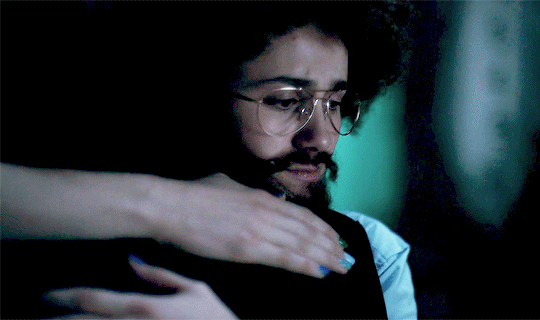
#euphoria hbo#euphoria#mentally ill#ocd tw#substance use disorder#rue bennett icons#jules x rue#rue bennett#zendaya#hunter schafer#seratonin#fuckoffiknowtheresamillionspellingmistakesbutimonarant
15 notes
·
View notes
Text
AnR characters mental issues
Hi there! I made several AnR analysis and for most characters, I ended up diagnosing them a mental disorder or illness. So I decided to do the same for each character. Keep in mind that I’m not a psychiatrist so I might be wrong on certain stuff, but I tried my best to be accurate.
Azuma Tokaku - Post-traumatic stress disorder (PTSD)
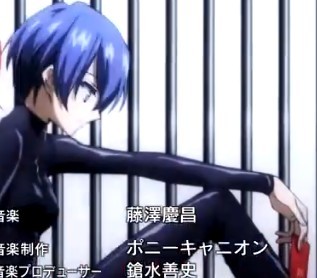
In the series, Tokaku showed signs of having a PTSD. She went through a traumatic event as a child, which is to witness the murder of her aunt by the hand of her grandmother. It mixed with the words her aunt told her before dying, that she can’t kill because her mother is watching her. The traumatic events mixed with those words and are both parts of her PTSD, which is being triggered by the thought of killing. When she tried to kill Isuke the first time, she froze. When she threatened to kill Kouko, she started shaking. But when she finally remember and understood the cause of it, Tokaku managed to overcome it. Another thing Tokaku might have is Schizoid Personality Disorder, which would explain her emotionless nature and lack of social interest.
Inukai Isuke - Childhood trauma

Isuke experience trauma in her childhood that still has an effect on her behaviour as an adult. As a child, she was highly neglected and have to witness her brother died due to this. Her family was poor and nearly died because of the lack of money. It explains why Isuke is so obsessed with money, it isn’t just because she’s greedy, but because to her money is literally a matter of life and death. Behind that greedy and selfish attitude, Isuke simply wants to not be in the same situation as before or see another person she cares about suffering the same fate as her brother (reasons why she wants to offer money to her adoptive parents). A lot of people think that Isuke is a narcissist, but she isn’t. Narcissistic people care about their image, the way people view them. Isuke doesn’t care about what others think of her. She’s simply a self-centred person who have a high esteem of herself.
If you’re interested in more information, here’s an Isuke analysis I made.
Kaminaga Kouko - Inferiority complex

Kouko’s past and behaviour indicated a potential inferiority complex. As a child, she was bullied and made fun of, and her group treat her as a failure. As a teenager, Kouko seeks positions of power, she wants to be the class representative and even call herself “leader of everything”. This could be a way to cope with her feeling of inferiority (so like a superiority complex hiding an inferiority complex). Her group made her felt like she worth less than the other members, giving her a feeling of being inferior and the need to prove it isn’t the case by asserting her authority and proclaiming herself as the leader. It’s her way to deal with the feeling of inferiority. She could also have a form of survivor guilt, feeling that she should be the one of having died instead of Irena, feeling guilty over her death and again, related to her inferiority complex, believing that Irena was superior to her and deserved to live more than her.
Kirigaya Hitsugi - Pathological liar

Hitsugi lies on a daily basis. Her entire persona is a lie. Acting like an innocent child just to deceive others. We don’t know for how long Hitsugi is an assassin, but since’s the ace of an organization at such a young age, we can assume she was one since an early age. So she was raised and train to be a liar, someone who can trick others. Lying is part of her life, it’s natural for her. She usually doesn’t feel guilty for lying, but she did with Chitaru since she loves her. But it didn’t stop her from lying to her for such a long time. And even after the series, if we view the official doujins KnR as canon, Hitsugi continues to lie to Chitaru to keep her by her side. Hitsugi is a liar by nature and would be really hard for her to stop. Also show low self-esteem after meeting Chitaru, who made her realize how terrible she is, even comparing herself to a bug.
Kenmochi Shiena - Low self-esteem

I’ll start by saying that I think Shiena had absent parents in her life, and that’s the reason why instead of seeking help from them when she was bullied, she seeks help from people she met on the internet. If you don’t feel loved by your parents, chances are that will screw your esteem of yourself. But that’s more of a headcanon so let’s go with canon facts. When she was being bullied, Shiena kind of blame herself, wondering if she did something wrong. Bullying can cause someone to have low self-esteem. If we view KnR as canon, then Shiena isn’t an actual assassin. So we have a normal girl entering a deadly competition with real assassins. Looks like a desperate tentative to feel useful and have validation from her group. Why? To give herself more self-esteem because she lacks it. After being poisoned by Hitsugi and failed Class Black in KnR epilogue, Shiena showed a lot of self-hatred, viewing herself as a failure. It could only be because she failed, but that seemed pretty intense and might be how she usually feel when she doesn’t have her source of validation and self-worth (Collective Dismissal).
If you’re interested in more information, I made a Shiena analysis. It’s kind of old but it explains my headcanon regarding her past with her parents.
Sagae Haruki - Self-Sacrificing

This is not an actual personality disorder, but this is still an issue. Haruki is extremely self-sacrificing when it comes to her family. She put there well being before her, is ready to do anything for them, even committing murder, someone Haruki doesn’t like. She’s sacrificing her integrity for their sake. And it went as far as planning to die for them. But she seems to get better after the series, having a normal job and planning to send her siblings to school, so it’s possible that she overcame this issue. Maybe it’s because of what Haru told her after she failed, and her relationship with Isuke. Isuke could have taught her to be more selfish sometimes and give her a reason to stay alive and take care of herself.
Shutou Suzu - Melancholia

After living such a long life in which she lost all her love and is condemned to continue losing anyone she gets attached to, it would make sense for Suzu to have melancholic tendencies. A depressed state in which she’s sadly dreamy. Missing the past, wishing to be with her loved ones again, keep playing shogi which reminded her of her past lover. Suzu is not suicidal but she does wish to die. She wants to be cured of her illness and dies a natural death like her past lover did. I wouldn’t say Suzu is in deep depression, but she does strike me as someone melancholic. The fact she wishes for death is an indicator of it and the fact she was forced to outlive everyone she cared about.
Takechi Otoya - Psychopathy

Oh boy, this one… I’ll try to not be too long since I’m actually obsessed with that. So, Otoya exhibits a lot of psychopathic traits. Lack of empathy, charismatic, pathological liar, remorseless, deceitful, a bully. I actually don’t think someone who acts the way she does and commit the actions she made can be something other than a psychopath. May also possess psychotic tendencies, which would explain why she’s unstable and impulsive than a regular psychopath. Ah, and also a sadist and erotophonophile (lust murder, the sexual arousal when committing murder).
If you’re interested in more information, I made an analysis of Otoya’s mental condition.
Namatame Chitaru - White Knight Syndrome

Took me a while to diagnosed her something. So WKS, more common in men but can also affect women. Chitaru is a really chivalrous person who naturally wants to help and protect the weak. Just look at how she stuck to Hitsugi, who physically looks like the weakest of Class Black. She also said that she was worried about Haru. Chitaru is taking extreme measure to avenge a person whom she met only once, for the sake of her teacher (to avenge her daughter). Chitaru is a person of justice, chivalrous, who protect the weak and fight bad people (not sure but I think she’s a vigilante assassin). She probably can’t help protecting those she views as more vulnerable and is ready to go as far as murder to achieve that.
Hashiri Nio - Sociopathy

Do not be mixed with psychopathy. Psychopaths are born that way, sociopaths are made. A rough childhood and being used to criminality at a young age can cause someone to grow as a sociopath. Considering that Nio was raised to be an assassin and how she was treated, it does make sense. She also displays sociopathic traits such as lack of empathy, cruelty, deceitful, hatred for others, fake persona. Sounds awfully similar to psychopathy uh? Well, both are actually the same disorder, Antisocial Personality Disorder. The mains differences being the source and the fact sociopaths are capable of genuine love and bonding with others, like with Yuri.
If you’re interested in more information, I made a Nio analysis.
Hanabusa Sumireko - Megalomania

We have here a girl who is obsessed with power an being a queen. Good recipe for a megalomaniac. It's also known as grandiose delusion. People with this delusions often overestimate their own capacities, and have an immoderate desire for power. Can be caused by a lack of affection and low self-esteem, and given Sumireko’s past, she probably felt those two as a child, being constantly attacked and feeling weak enough to make the doctor cut off her limbs to replace them with cybernetic limbs. Sumireko doesn’t want to feel weak ever again thus is seeking for power, which developed into megalomania and the idea that she’s a queen.
If you’re interested in more information, I made a Sumireko analysis.
Banba Mahiru/Shinya - Dissociative Identity Disorder (DID)

This one is actually 100% canon. Dissociative Identity Disorder, also known as split personality. I mean, there’s no need to really debate on it, it clearly shows in the series she has that. DID can be caused by childhood trauma, which Banba suffered. DID can also come with other illnesses and disorders, such as PTSD, psychosis, schizophrenia, anxiety. And through the series, Banba showed signs to possess them all. She has a PTSD triggered by light, she’s disconnected from reality, she hears voices in her head (when one can hear the other personality), and is always showed to be nervous and anxious. This character is the only one I’m certain the author actually made researches about DID to create her because this is just so realistic and spot on.
If you’re interested in more information, I made a Banba analysis.
Ichinose Haru - Autism Spectrum Disorder

This one may surprise depending on your knowledge of autism. I’m autistic myself and I believe Haru is on the autistic spectrum. Most autistic people are introvert, but it doesn’t mean that extrovert autist doesn’t exist. I know a few IRL that are quite extrovert and really social. Autistic people are often naive and incapable of being malicious. It’s also hard for them to mix emotion and rationality. When Haru is being emotional she often acts irrationally, but when she’s being colder and less emotional she can be quite rational. Autistic people can also more easily deal with trauma, and Haru, despite her really traumatic past is still optimistic and positive. She also seems to lack basic social skills which make her kind of socially awkward, like she’s trying too hard. Like she’s being too friendly. Autistic people also often have an obsession, a restricted interest. Haru probably didn’t have the chance to develop one, given her past, but according to her info her hobby is crafting and she did show that she’s fond of that, with the strap she made.
Yuri Meichi - Superiority complex
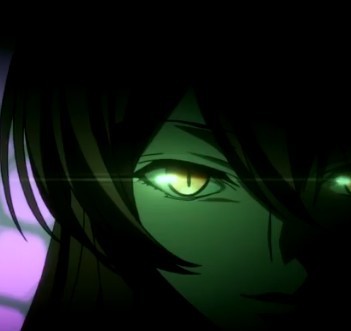
She may not be in Class Black but I believe she deserves to be on that list. Given her past and how powerful she is (let’s not forget Yuri won her Class Black in 6 days), Yuri probably feel above others, like she’s superior to them. This feeling causes her to have really low empathy for others since she views them as beneath her. She has no sympathy for Haru when she’s having a mental breakdown, she had no issues beating Nio has a child. And if we consider KnR as canon, then she also has a sexual relationship with Nio, which is, considering their ages, illegal. Yuri acts as if she’s above everything, even the law (well she technically is, given the fact her clan control the world) and morality. She also seems to treat others as tools. Some of those are psychopathic traits, but I don’t think she’s a psychopath. She’s most likely the result of her childhood, being a powerful queen bee, she’s just too used to control others which make her feel superior to them and view them as tools.
If you’re interested in more information, I made a Yuri analysis.
That will be all for this analysis. I hope you liked it and thanks for reading. If you have any opinions you want to share with me feel free, either you agree or disagree with me.
#akuma no riddle#riddle story of devil#anr#tokaku azuma#isuke inukai#kouko kaminaga#hitsugi kirigaya#shiena kenmochi#haruki sagae#suzu shutou#otoya takechi#chitaru namatame#nio hashiri#sumireko hanabusa#mahiru banba#shinya banba#haru ichinose#yuri meichi#analysis#mental illness#mental disorder#mental issues#headcanon#theory#ricky talk
83 notes
·
View notes
Text
WEEK 13, 14 & 15 (Part 2)_ MASCULINITY and IDENTITY: the male experience with self-image
London January 2019
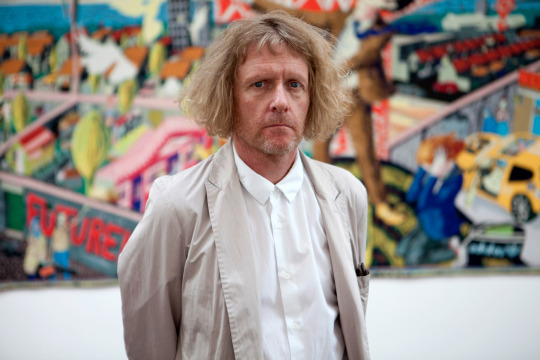
GRAYSON PERRY exploring the male experience
Grayson Perry is an English contemporary artist. Known for his work with ceramic, tapestries and his cross-dressing passion, as well as his observations of the contemporary world and art scenes. I was first introduced to his work by our tutor Luke when trying to find some references for the topic of THE MALE EXPERIENCE with IDENTITY and IMAGE. Although, I don't recall ever learning about him and only properly inspected his work recently, still his work has a familiar feeling to me. Maybe I have experienced his art before as a child as I would regularly go on exhibitions with my parents. An maybe this is the reason why it might be, subconsciously, stuck in my brain. Nonetheless, I found my self very interested in his work as I am an advocate and lover of DRAG. As with most movements related to self-expression through fashion in combination with androgeny. I am also a big fan of the '60s and '70s with all their bright colours, MOD movement and POP ART.
The artist explores themes such as Identity and Self-reflection. Most of is work is connected to some kind of introspect or reflection on modern society. Specifically the modern MAN and as a subtheme, he tackles subjects such as Masculinity and questions if this concept is outdated. He is also known to work with topics that deal with populism, the celebrity and modern Britain.
For this post, I read three different books by Grayson Perry. The first one titled The Most Popular Art Exhibition Ever!, 2016. The book focuses on explaining and inspecting the thoughts behind the exhibition with the same name. The author goes to explain the nature of this name and how it became first than the content itself.
For many artists, the word POPULAR is "a bit of a dirty word". Most people first reacted to his exhibition with "laughter". Many think that art is not for everyone, Grayson Perry strongly disagrees. He wants to "widen the audience without dumbing it down". He goes on to explain that in the artist world POPULISM and POPULARITY is bad and tasteless. The author questions why does popularity threatens the art appeal. He writes about how Artists like exclusivity. When creating an exhibition entitled "The Most Popular Art Exhibition Ever!" people found very od to have an event bosting itself in such context (Perry, 2017).
In Perry´s words, an exhibition is "like creating a world or a club that people only get in if they GET art" (Perry, 2017) as in, one must understand it. This a very classical ideal as later contemporary artist support the idea that one must FEEL and experience art, rather than understanding it.
He goes to explain that education, especially art education, used to be for a small privileged elite. And that the relation between POPULARITY and EXCLUSIVITY “reflects something fundamental about us humans”. We are in the end animals that work in packs. We want to belong in a group. It's our nature. HOWEVER! We strive to create a strong INDIVIDUAL IDENTITY. This creates tension in our existence as a species (Perry, 2017).
“ Part of a reason we choose to consume culture is how it might reflect on our status"(Perry, 2017). This seems to be a common statement from people that are interested and study human behaviour in connection to identity. And one that seems to create disagreement and insurgency, as proven in our in-class conversation. I think some people are too afraid to admit that us humans are flawed and very much self-created. Personally, I don't see this statement as a bad thing, ultimately. It means we are able to shape our selves to be the best version possible. But, I come to understand that it represents a threat to some people that like to think of us humans as this perfect and harmonious beings.
A few days I heard this quote but I can't remember from who or where. It goes like so: " Human beings are a broken mess, in a variety of ways. That is one of the things that actually unify us all". I think is very much true. We need to admit and understand we are not perfect and that is ok instead of repressing our fluid and creative ways.
Coming back to the context of art and being a "sell out" the artist says that he disagrees with such a concept in relation to POPULARITY. However, that is sad how “ what starts as a creative revolt soon becomes corrupted as the fastest way to make money” (Perry, 2017). And that just shows the society we are inserted in with such capitalist ways.
Then in one of his ceramic pieces, Perry comments that it is a “funeral urn for outdated masculinity” (Perry, 2017). A big part of his work and a recurrent motif is masculinity and questioning it. I will add on to it later on this topic and with some other texts from this author we understand where his passion for this subject comes from.
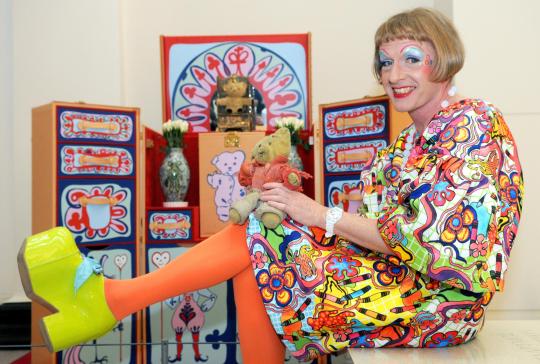
“My Job is to notice things that other people don´t notice”.
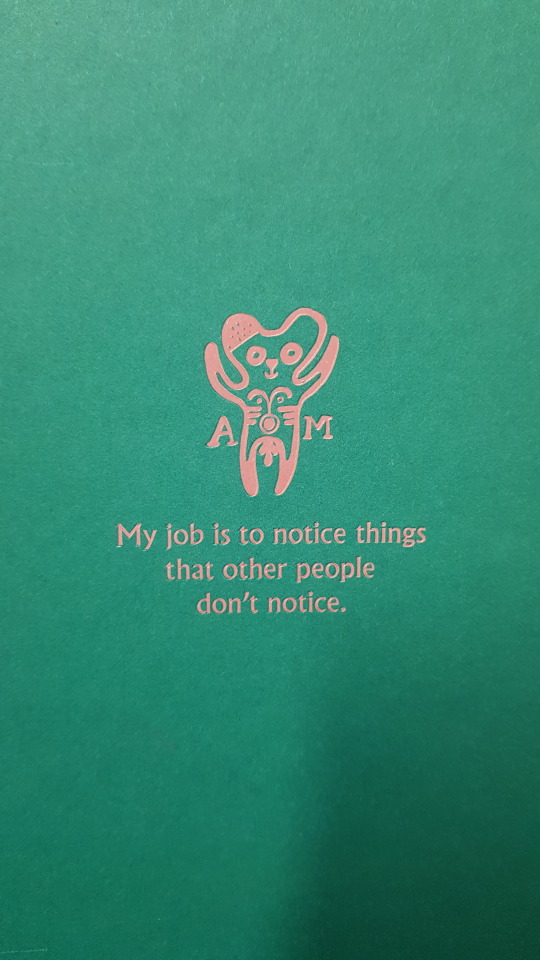
In the book Grayson Perry: My Pretty Little Art Career I will be mainly analysing the artist work and style and some of his principal stylistic characteristics and themes.
First of all, I want to address the presentation of the book. Aesthetically and the way the content is presented to us. The exterior os the book show amazing design and craftsmanship. It is very appealing as it is a great representation of the art style with all its bright colours and many textures. However, it is done with great taste and its not overpowering to the reader. It also reflects a good representation of the artist work throughout the year providing a lot of images references in time and some explanation to the artwork, similar to the last book. The design pays great attention to detail as it carries interesting and intelligent use of symbolic references to symbols notorious in Perry's work - such as the golden bear.
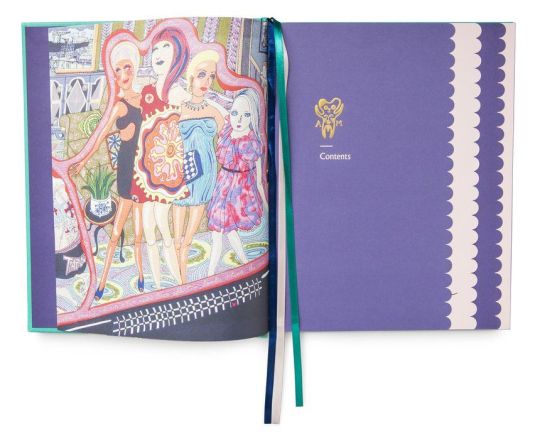
The artist represents an interesting mixture of the Old and the NEW. The classic or even prehistorical with his works with mediums such as tapestries, vases and intricate objects that retain something similar to artefacts. However, upon further inspection, we realise it is, in fact, contemporary art. His work with ceramics and vases- ar first glance- reminds us of classical objects but the usual images from mythology are no replaced with the westernised world, technology and pop culture.
The modern and contemporary ints of POP ART and the use of elements from graphic novels in his work, alongside some references to pop culture and advertising, create this perfect parody.
His illustration work is a twist on what, at first, might look like a Victorian etching but the themes are now modern. Perhaps some of his characters and symbols, for example, THE DOLL might help to create this illusion and taking us back to the INDUSTRIAL REVOLUTION.
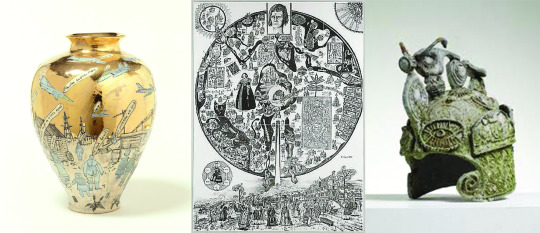
THE DESCENT OF MAN book review
In connection to the first book, we see that Grayson Perry has a passion to make his art accessible while keeping it meaningful and proposing a comment on society. He wants people to think about these topics and perhaps help in changing mentalities. For this reason, it is understandable and actually smart how he tries to make is work so approachable and apeling.
The main topic of the book is without dought MASCULINITY and the modern man. This book is much more personal to the author as he shares his own childhood stories and feelings.
I will be mentioning some of the titles of the different chapter for this book. I found them very catchy and personally interesting in the user accessible language and popular sayings.
“ What sort of man would make the world a better place for everyone?” (Perry 2016)
The main goal of this book is to QUESTION what is masculinity and weather is working for us as a society. The artist what to bring awareness to toxic masculinity. He says finds it VERY IMPORTANT because it's "the tool used to hurt so many minorities". It is "so destructive" to him that he claims that "most bad things in the world can be traced back to toxic masculinity". Crimes, toxic relationships, abuse, Sex crimes, Suicide, Corruption, Racism, abuse of power, child abuse and trauma (Perry 2016).
He then claims he’s not blaming MAN directly, but blaming the way society shapes man. The then says “ beneath… men are naked and vulnerable- humans even" (Perry 2016). He explains that in our society many people say that examining masculinity is a luxury and that he strongly disagrees. He thinks it is very important to bring light to this topic and that by thinking its a privilege to address this issue we are holding back society.
"Masculinity is a straight jacket keeping MAN from being human and being themselves" (Perry 2016).
“I am not against man _ neither against all masculinity” (Perry 2016). Perry then talks about GENDER and SELF EXPRESSION. And says that they are NOT singular. People assume that because he is "travesty" it gives him an insight into the opposite gender. He says “that’s rubbish! How can I as a man, know anything about the experience of being a woman". Claiming that would be an insult to women.
He talks about IDENTITY as an ongoing performance. Has seen in many other texts that I have reviewed this is as a popular opinion and many artists in different rams have commented on this. Even Shakespeare himself famously said:
“All the world's a stage, and all men and women merely players: they have their exits and their entrances, and one man in his time plays many parts, his act being seven ages” (William Shakespeare).
This brings us to the interview with Gonçalo where he compares lives with being on stage, in his case quite literally as he is an actor. The same thing applies to all of us as we creat portrait of ourselves daily and our identity is very much forged although it might come to us very naturally.
In the introduction If it ain´t broke, don’t fix it, he talks a lot about his upbringing. Shares stories about this childhood as well as introducing us to some main characters in is live. Also, the relationship he was with male figures in his childhood hand his relationship with his teddy bear. This specific character later transforms into a very important symbol in his work.
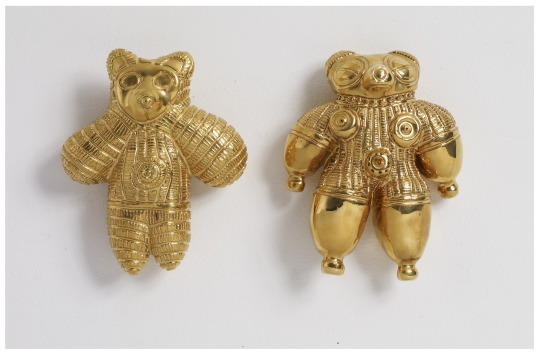
In the INTRODUCTION part of the book, I question MASCULINITY a lot but also shares some experiences. He says “Men don’t know how to deal with pain so they transform it into hanger!”(Perry 2016). He mentions this when recalling an instant from his childhood. He describes this moment in the 3rd person. A passage says “ Sobbing. He is crying for help, but he is also in a boiling rage”, this particular quote reminded me a lot of little brothers behaviour. And we realise how this instant put into the world seems so sad and harsh, when in reality it happens right in front of our eyes.
The author then comments, “I can't help my self to say: I hope your son can afford a good psychotherapist when he grows up”. He criticises these types of behaviours and the ways we teach young boys. Future man.
My analysis will end here as my reading, for now, is mainly focused on the introduction chapter of this book. I haven’t finished the book yet. I decided to continue my reading as I found myself truly interested and immersed in the text and Perry´s standpoints. It stood out to me how he answers questions that I didn’t know I had but felt like I was looking for. I strongly recommend this reading and I really enjoyed learning more about Grayson Perry as an artist and author.
“The truth will set you free, But first it will piss you off” (Gloria Steinem)
REFERENCES
Perry, G. (2017). The Most Popular Art Exhibition Ever! Penguin Books. Perry, G. (2016). Grayson Perry: My Pretty Little Art Career. Perry, G. (2016). The descent of man.
0 notes
Text
A Conversation with My “Rapist” - Part 1, A History
Two days ago, I had a very interesting experience. TW: abuse, trauma and rape
I want to share it with you all and process it - brace yourself for a long, very personal, pretty heavy read... in multiple parts
I came to uni 3 years ago, at age 19, with an open heart and open mind, thankful to have escaped from the home town where I suffered a great deal of abuse, neglect, bullying and harassment. I was feeling hopeful - I could use this fresh start and change of environment and pace to change things and myself. I was also very vulnerable - having missed out on so much development and many of the experiences that a normal child growing into an adult would face.
I knew I was damaged from my past, I was scared of simple things - like being hugged. This held me back in connecting to people (and still does now in more complex ways) - the thing I wanted most, and I tried to work on this everyday. I attempted to slowly confront my fears and relearn how people are.(As it stands, I can now hug people without being scared so yay me!)
During this time, I find someone who I really like and am immediately intensely attracted to. They are charming, fun and somewhat mysterious. Truth be told, I could still write a thousand sonnets about the experience of “falling in love” (albeit superficially) with them. This was maybe the 3rd time in my life I’d had a real life (as opposed to online) crush return the interest - the first and only genuinely wholesome time being when I was 14. (side bar: Dear Penguin Boy, you will always hold a special place in my heart, you adorable nerd. I am so sorry I dumped you out of the blue, I wasn’t aware of splitting back then or my shitty disordered attachment style. PS. How’s your egg doing? ) The second was when I was 18, and in retrospect was probably (read: definitely) being manipulated by this older Dutch man who had a thing for taking advantage of inexperienced younger girls. (Which my virgin ass surely was.) The trauma of that experience is a story for another time.
This was only made better by the fact this time it was a fucking girl. A fellow woman? Showing interest in ME? LORD BE PRAISED - MY GAY DREAMS ARE COMING TRUE. I could barely believe it was even happening.
We hook up and eventually begin to date. The relationship is incredibly tumultuous - our flaws and unresolved past baggage ravage the other’s. We both like each other, but over the year and a half of stop and starts we hurt each other frequently.
I know I’ve made mistakes in the relationship - applying pressure for it to be more serious than she wanted (FWB to actually dating) being the main one. And beyond that, pushing for things to go to fast and trying to rush the emotional connection that I was craving. We start on poor footing due to this, but she doesn’t protest strongly or make it clear when things progress further that we’ve gone beyond what she wants. In retrospect, it was still wrong of me to pursue to relationship in the first place.
I wish we’d just dated super casually instead - less sex and private hang outs (where if you don’t talk, there’s not much to do but fuck) and more public dates until we knew each other better or didn’t want to pursue it further. I also wish we’d deeply and bluntly discussed our understanding of what was happening, where things were going and relationships in general. Pro-tip: always confirm definitions - people mean totally different things with the same words. It would have made things a whole lot less confusing.
As we date, certain things become clear.
She doesn’t understand consent. She knows that if someone says no you stop - but beyond this, she cannot see the grey areas that exist and that it’s most important to get a yes.
I live in the grey areas, unwillingly, which is why I try to communicate so bluntly and be so straight forward. I’m already so complex - I don’t need or want to add any extra grey. Being complicated isn’t something fun I chose to do to be mysterious - it’s something I had forced upon me by circumstance - fighting to survive and get my needs met as a child. How I’ve adapted to cope with that. It’s something I’ve spent and will spend years in therapy trying to rectify.
When I try to talk to her about this - she wants me to teach her about BDSM, so I try to start with the most important part, the foundation, consent and communication - she gets angry with me. She considers herself the victim and does not take criticism or questioning well - but it takes me years to realise this.
I try desperately to understand her, but with no communication to go on, I am lost. She hates when I probe and needs to open up in her own time. She doesn’t share much of anything at all - from the small details about her day up to how she feels in the moment. I am sometimes given stories from her past, and left to extrapolate the rest. I hate the unknown - I am scared, so I push- for anything.
I have idolised her and refuse to blame her for her flaws. I buy into the victim narrative she believes not realising it. I am unable to explain her behaviour through insight into her past or present emotional state/experiences due to lack of data, but I try desperately anyway. Lacking context, I settle on believing her actions are always my fault, a lie I’ve been fed by abusers in the past. She’ll give me what I want and need when I deserve it by being perfect.
I become increasingly scared, self-loathing and insecure. I berate myself for every small thing I see as being done wrong, and whenever I take issue or am hurt by something she does or doesn’t do (usually communicate with me more), I find a way to make it my fault. I waste hours of my alone time on this, tearing myself down.
I believe I am abusive and toxic, I am the perpetrator and she believes she is the victim of things in life and I suppose that she rarely does anything wrong. I deny my own reality and accept hers. She doesn’t need to manipulate me, no one would, I do it to myself.
In my defence, my reality was/is pretty fucking abysmal and you might want to deny it in my place too. Despite the misplaced shame and guilt, it’s easier to be an abusive person than admit you’ve been so chronically abused and continue to relive it. One is a position of power... and the other is a complete lack of it. If I’m being abusive, then I can change. If I’m being mistreated, there’s not much I can do, it’s in the other person’s hands to cut it out or step up. And if there is anything that will trigger a victim of childhood neglect and abuse it's feeling helpless / powerless.
To others, it looks like she is manipulating me to believe this about myself, but in fact I am filling the gaps in our relationship with past experiences. I am reliving and recreating the trauma of my past abuse. She shares the victim mentality (and unfortunately enough, the height and build and gender expression of, priming me for this response) with a past online lover of mine who I was emotionally abused by and sexually pressured by for a year at 17.
It is easy to see how rape occurs within this dynamic. And, as a big surprise to no one, it did
In a way, it was predestined by the circumstance and flaws of each of us. It was almost inevitable, unless either I realised what was happening and dealt with my past trauma or she worked through her issues with the victim mentality and then went on the learn more about consent and communication. We were both 19. This wasn’t going to happen without some outside intervention.
Here’s the interesting part though - the level of insight, understanding and processing I have now would not have been reached had I not sat down to talk with her multiple times. It wasn’t easy and it definitely wasn’t pleasant for either of us - but I know it was ultimately beneficial. Or, at least... the most recent go at it (only a few days ago) was. And that’s what I would like to explore next.
0 notes
Text
Study: Children from Poor Parents, Even if they have a Drug Problem, do Worse if Put into Foster Care


This billboard sponsored by the Ad Council encourages potential foster and adoptive parents that they do not have to be a “perfect parent” in order to foster or adopt. But the same standard does not hold true for biological parents who have their children taken away from them and put into foster care.
by Terri LaPoint Health Impact News
Children fare better in their own homes with family than they do in foster care situations. The evidence continues to mount that this is true, even when the child's home has problems. In the supposed effort to protect children, the Child Protective System actually increases trauma for children when they take them away from their parents, relatives, and everything they know.
Foster parents, even those with good intentions, simply cannot replace the basic human need that children have for their biological families, and it is becoming increasingly evident that many foster parents do not have such saintly intentions when they take in children.
The Lancet recently published a new study which shows that preschool children taken from their homes are twice as likely when they become young adults to have psychological problems and criminal convictions than those left in their own homes. Unlike previous studies, this long term, population-based study matched the children in foster care with children from families with similar sociological and economic demographics.
The study comes out of Finland and is entitled, “Out-of-home placement in early childhood and psychiatric diagnoses and criminal convictions in young adulthood: a population-based propensity score-matched study.”
Most Children Not Taken for Reasons of Abuse
The authors of the study acknowledge that the majority of children taken from their homes in Finland, like the United States, are not taken for reasons of abuse:
The most common reasons for placement are parents' inability to care for the child because of their physical or mental illness or because of the child's need for special care and education.

Eric Ziegler and Amy Fabbrini lost their children to the system because CPS deemed them to incapable of parenting due to their IQ. They have since gotten one of their children home. See story.
In the United States, less than 16% of all the children removed from their homes by Child Protective Services were removed for reasons of physical abuse (12%) and sexual abuse (4%), according to the 2017 AFCARS (Adoption and Foster Care Analysis and Reporting System) report from the U.S. Department of Health and Human Services. (Source.)
Finland's Child Protective Services system seems to have much in common with the system in the United States. According to an investigative report from a Finnish public broadcaster YLE, there are:
High numbers of children in foster care, insufficient supervision of alternative care facilities, inadequate training of social workers …. One critic says the system is broken partly because of a whistle-blower culture, unfettered power given to social workers – and big bucks paid out for children placed in care.
More Money Is Not the Answer
They spend billions of euros on foster care and child protection, yet the damage to children taken by the system is significant. The criticisms from Finland cited by YLE are the same ones we see frequently in the United States:
Families are being destroyed with false accusations. Too much power is given to social workers.
If I don't do as they say they threaten to take the kids away. Even my lawyer says I should shut up … and that I can't fight the system.
It's been three years and I'm seeing the kids less and less frequently. It's like the kids for cash, for-profit system in the US. (Source).
The National Coalition for Child Protection Reform examined the Lancet study and concluded:
The fact that researchers got these results in Finland is important for a very different reason: In America foster-care apologists constantly blame the rotten outcomes of foster care on the fact that the system is underfunded. If only we had more money, they claim, we could fix it.
But Finland is a world leader in social welfare spending; by some measures it's #1 in the European Union. If money is the problem, then the results from Finland should be vastly different. That they are not is still more evidence that foster care is inherently so traumatic for a child that it is fundamentally unfixable.
Molly McGrath Tierney, the former Director for the Baltimore City Department of Social Services that oversees foster care, agrees.
In her TED talk she states that when she was overseeing the department, they:
articulated a mission and repeated it like a broken record, “Kids ought to be in families.”
See:
Baltimore Child Welfare Director: Foster Care is a Bad Idea – Kids Belong in Families
youtube
The System Targets Poor Families and Preterm Babies
The Finland study looked at all children born in 1997 who were first taken from their families between the ages of 2 and 6. The researchers utilized the 1997 Finnish Birth Cohort, which contains data from every child born in Finland in 1987.
They accessed the national Finnish health care data base for psychiatric diagnoses and psychotropic medication prescriptions to follow this group of children as they became adults between the ages of 18 to 25. They looked at criminal convictions for the same group. According to the researchers:
To our knowledge, this is the first study to use data from medical records for psychiatric problems and legal records for criminal offences.
When they looked at the rates of children placed into foster care as a whole, they found that poorer families were more likely to have their children taken. According to the researchers:
…individuals who were placed as children were more likely than non-placed controls to have come from families that used social assistance benefits, and have parents who were very young, less educated, smoked during pregnancy, divorced, or diagnosed with a mental health issue.
They found that children taken from their parents were also more likely to have been born preterm, but that was the only significant difference between the children themselves who were taken versus those who were not.
Researchers sought to differentiate whether the harm could be attributed to time in the foster care system or if the outcomes were because the children who were placed in the system typically came from family situations that placed them at increased risk of such outcomes anyway. The authors stated that:
Children placed out-of-home usually come from low-income families, with few resources or social support, high rates of physical violence, psychological and social problems, and abuse or neglect.
As these same characteristics are also risk factors for poor mental health and criminal behaviour, it is difficult to establish which observed negative outcomes for placed children are attributable to placement or to those background characteristics.
Therefore, they constructed the study to deal with this variable.
Family Situation Does Not Account for Increase in Bad Outcomes
In order to make the distinction, the study carefully matched foster children with children who were not taken from their homes who came from similar economic and family backgrounds.
Once they took into account these risk factors, researchers found that children taken from their homes and placed into the system had double the risk of significant psychological problems and criminal activity than those children who remained with their families:
In this population-wide birth cohort study using data from linked administrative databases, we found that children removed from their parents and placed in institutions or foster care at ages 2–6 years had odds of having a psychiatric diagnosis, filling prescriptions for psychotropic medications, or having a criminal record in young adulthood (18–25 years) that were twice as high compared with their non-placed counterparts.
Of the children taken from their homes, 33% were treated for psychiatric or neurodevelopmental disorders, including psychotic and bipolar disorders, depression and anxiety, and substance-related disorders. This is compared to 17% of the matched controls who were not taken.
More than a third of children placed into foster care, 36%, had some kind of criminal conviction between the ages of 18 to 25, compared to 21% of children who were not taken even though there were similar home conditions to the ones who were removed.
According to the researchers:
…our findings suggest that placed children have an excess risk of poor outcomes in young adulthood compared with non-placed children, over and above what might be explained by measured risk factors reflecting sociodemographic characteristics and family background.
Children Need Their Families
Children were designed biologically, psychologically, emotionally, and spiritually to need connection with their parents and other family members. Attachment is a fundamental human need that is acknowledged by the authors of the study:
Children's dependence and attachment to the family is fundamental in early childhood, and disrupting attachment via out-of-home placement could have a negative effect on future outcomes.

Tracey Verzosa's newborn was taken from her because CPS already had the family's other children. After years of fighting, the children finally came home. Nothing can make up for the trauma of their separation. See story.
The authors did not seek to determine why placement into foster care led to negative outcomes, but they state that:
Placement could lead to psychiatric illnesses because of the hazards of foster or institutional care, including poor quality and disrupted care (ie, change in the mode of care).
The timing of placement-ie, during early childhood-might have disrupted attachment with parents during a sensitive developmental period…
However, the matching procedure and sensitivity analyses suggest that the home life characteristics that led to out-of-home placement cannot explain the pattern of results.
Other Studies Confirm that Children Are Better off at Home
This is hardly the first study to look at outcomes comparing children in foster care and children left in “troubled” homes. There have been numerous other studies, and they all come to the same conclusion: children left in troubled homes with their families do far better than children put into foster care.
Joseph Doyle, an economics professor at MIT's Sloan School of Management, published a study which tracked at least 15,000 kids from 1990 to 2002. USA Today reported on the study which was the largest study of its kind at that time.
See:
Foster Care Children are Worse Off than Children in Troubled Homes – The Child Trafficking Business
Joseph Doyle did another study, one year later in 2008, comparing children left in troubled homes with foster care children to see which group was more likely to be arrested as adults.
The study looked at 23,000 children, and it found that
“…children placed in foster care have arrest, conviction, and imprisonment rates as adults that are three times higher than those of children who remained at home.”
Read the full study here.
See our coverage of other studies:
Kids in Foster Care 3 Times As Likely To Get Psych Drugs
New Study Confirms Foster Care System Harms Children
Even Cocaine Abused Babies Also Do Better with Their Own Mothers
“What about the babies who are born addicted to drugs?” some may ask.
Even in those situations, an older study conducted by University of Florida researchers found that babies born to mothers who use cocaine fare better with their biological mothers than those who were taken from their mothers and placed with foster parents or relatives.
According to Science Daily, the study compared babies taken from mothers who used cocaine, to babies whose mothers used cocaine but were not taken, and to babies born to non-drug using mothers. The babies included in the study were all “equally healthy.”
Researchers discovered that:
Six months after birth, babies who went to live with a relative or foster parent were significantly less likely to smile, reach, roll over or sit up compared with children who remained with their mothers.
Some of the babies were not taken immediately after birth, but were removed by social services at some point later, but Dr. Indrani Sinha, pediatric resident at UF involved in the study, noted the alarming effect of removing newborns from their mothers:
But it was the babies who were immediately placed in foster care after birth that were at greatest risk for lowered motor development, she said.
The System Is Filled with Children Who Don't Belong There
As horrific as the outcomes are for children who are taken from their parents and placed into foster care, many policy makers, legislators, and our friends and neighbors continue to assert that foster care is necessary to protect children from abuse and harm.
Billions of dollars are poured into the system, but the evidence consistently shows that the foster care system is not helping children.
The majority of children, in the U.S. as well as Finland, are taken for “neglect” – an ambiguous term that can be interpreted to include dirty dishes in the sink, playing outside in the yard, or simply being poor.
Only 17% of the allegations against parents are “substantiated” or “founded” according to the 2016 Child Maltreatment Report by the U.S. Department of Health and Human Services. (Source.)

The Stanley children were taken away from their parents over false allegations. They have since returned home, but the scars remain. See story.
50,000 Innocent Parents Sitting in Prison?
As hundreds of stories covered by Health Impact News demonstrate, innocent parents continue to lose their children to the Child Protection and foster care system.
Allegations of Shaken Baby Syndrome, or Abusive Head Trauma as it is sometimes called, is one of the top medical reasons that children are taken from parents. The babies have one or more symptoms in the “Triad” of symptoms, which include brain bleeding, retinal hemorrhage, and brain swelling.
Dr. Waney Squier is a world-renowned pediatric neuropathologist who points out that these symptoms happen in normal babies who have not been abused. She recently told BBC that:
…almost ALL newborn babies have some bleeding into the dura, the membrane that surrounds the brain, and quite a high proportion have bleeding under the brain [dura].
If you do brain scans on newborn babies, half of them have both the subdural bleeding and the retinal bleeding, which is characteristic of Shaken Baby Syndrome.
See:
Pediatric Neuropathologist on Failed Science Behind Shaken Baby Syndrome: Doctors Value Their Careers More than the Truth
Many of these cases involve babies who actually have infantile rickets or other metabolic bone disorder, but doctors failed to correctly diagnose the problem, instead accusing the parents of Shaken Baby Syndrome.
Dr. David Ayoub, radiologist and expert on infantile rickets, told Jean Casarez of CNN in an interview that the parents wrongfully imprisoned after being accused of Shaken Baby Abuse numbers “In the tens of thousands.”

Dr. David Ayoub. Photo source.
Health Impact News contacted Dr. Ayoub and asked him how he came to these numbers of “tens of thousands” innocently convicted for child abuse.
Was it just a guess, pulling some numbers out of thin air?
Dr. Ayoub replied by stating to Health Impact News:
I get about 1 case per day request, and they are nearly 100% rickets cases. It is RARE that I get a normal bone referral, less than 1%.
I am sure I am consulted in less than 1% of all ongoing cases (regarding SBS charges of child abuse).
There are easily 2,000 cases per year of fractures in infants since the 1980s.
50,000 cases is a reasonable estimate.
See:
Florida Dad Wrongfully Convicted for Shaking Baby and Served 20+ Years of a 70 Year Sentence Featured on CNN
Munchausen Syndrome by Proxy is another allegation that we commonly see used as a reason to medically kidnap children. True Munchausen may exist, but it is extremely rare.
The vast majority of Medical Kidnap cases involving these allegations end up being cover-ups for vaccine injury or medical malpractice. As with Shaken Baby Syndrome, it is apparently easier to blame the parent than for doctors to admit that they are wrong.
The children of the parents who are wrongfully accused of Shaken Baby Syndrome or Munchausen Syndrome by Proxy frequently wind up in foster care. They shouldn't be there. These children suffer the same trauma from being removed from their families as other foster children.
When Will We Put a Stop to This Destruction?
How much more evidence do we have to see before we finally wake up as a society and recognize that the way we are doing things that we thought was helping is not actually helping?
There are almost half a million American children in foster care at any given time. Many more have been in the system at some point during their childhood.
At what cost to our children?
At what point do we understand that the “good” stories and outcomes that we see from the foster care/forced adoption system are the exceptions and not the rule?
The late Senator Nancy Schaefer of Georgia fought to wake up the public to the reality that families were being harmed, not helped, by Child Protective Services and foster care.
She wrote a scathing report to Congress, “The Corrupt Business of Child Protective Services,” and she came to this conclusion:
I have witnessed such injustice and harm brought to these families that I am not sure if I even believe reform of the system is possible! The system cannot be trusted. It does not serve the people. It obliterates families and children simply because it has the power to do so. Children deserve better. Families deserve better. It's time to pull back the curtain and set our children and families free.
“Speak up for those who cannot speak for themselves, for the rights of all who are destitute. Speak up and judge fairly; defend the rights of the poor and the needy.” Proverbs 31:8-9
See:
Senator Nancy Schaefer: Did her Fight Against CPS Child Kidnapping Cause her Murder?
Comment on this article at MedicalKidnap.com.
Medical Kidnapping: A Threat to Every Family in America T-Shirt

100% Pre-shrunk Cotton! Order here!
Medical Kidnapping is REAL!
See: Medical Kidnapping: A Threat to Every Family in America Today
Help spread the awareness of Medical Kidnapping by wearing the Medical Kidnapping t-shirt!
Support the cause of MedicalKidnap.com, which is part of the Health Impact News network.
Order here!
<!--//<![CDATA[ var m3_u = (location.protocol=='https:'?'https://network.sophiamedia.com/openx/www/delivery/ajs.php':'http://network.sophiamedia.com/openx/www/delivery/ajs.php'); var m3_r = Math.floor(Math.random()*99999999999); if (!document.MAX_used) document.MAX_used = ','; document.write ("<scr"+"ipt type='text/javascript' src='"+m3_u); document.write ("?zoneid=3&target=_blank"); document.write ('&cb=' + m3_r); if (document.MAX_used != ',') document.write ("&exclude=" + document.MAX_used); document.write (document.charset ? '&charset='+document.charset : (document.characterSet ? '&charset='+document.characterSet : '')); document.write ("&loc=" + escape(window.location)); if (document.referrer) document.write ("&referer=" + escape(document.referrer)); if (document.context) document.write ("&context=" + escape(document.context)); if (document.mmm_fo) document.write ("&mmm_fo=1"); document.write ("'><\/scr"+"ipt>"); //]]>-->

Support the cause against Medical Kidnapping by purchasing our new book!
If you know people who are skeptical and cannot believe that medical kidnapping happens in the U.S. today, this is the book for them! Backed with solid references and real life examples, they will not be able to deny the plain evidence before them, and will become better educated on this topic that is destroying the American family.

1 Book – 228 pages Retail: $24.99 FREE Shipping Available! Now: $14.99 Order here!

2 Books Retail: $49.98 (for 2 books) FREE Shipping Available! Now: $19.99 (for 2 books) Order here!
Also available as eBook:

eBook – Download Immediately! $9.99
<!--//<![CDATA[ var m3_u = (location.protocol=='https:'?'https://network.sophiamedia.com/openx/www/delivery/ajs.php':'http://network.sophiamedia.com/openx/www/delivery/ajs.php'); var m3_r = Math.floor(Math.random()*99999999999); if (!document.MAX_used) document.MAX_used = ','; document.write ("<scr"+"ipt type='text/javascript' src='"+m3_u); document.write ("?zoneid=3&target=_blank"); document.write ('&cb=' + m3_r); if (document.MAX_used != ',') document.write ("&exclude=" + document.MAX_used); document.write (document.charset ? '&charset='+document.charset : (document.characterSet ? '&charset='+document.characterSet : '')); document.write ("&loc=" + escape(window.location)); if (document.referrer) document.write ("&referer=" + escape(document.referrer)); if (document.context) document.write ("&context=" + escape(document.context)); if (document.mmm_fo) document.write ("&mmm_fo=1"); document.write ("'><\/scr"+"ipt>"); //]]>-->

0 notes